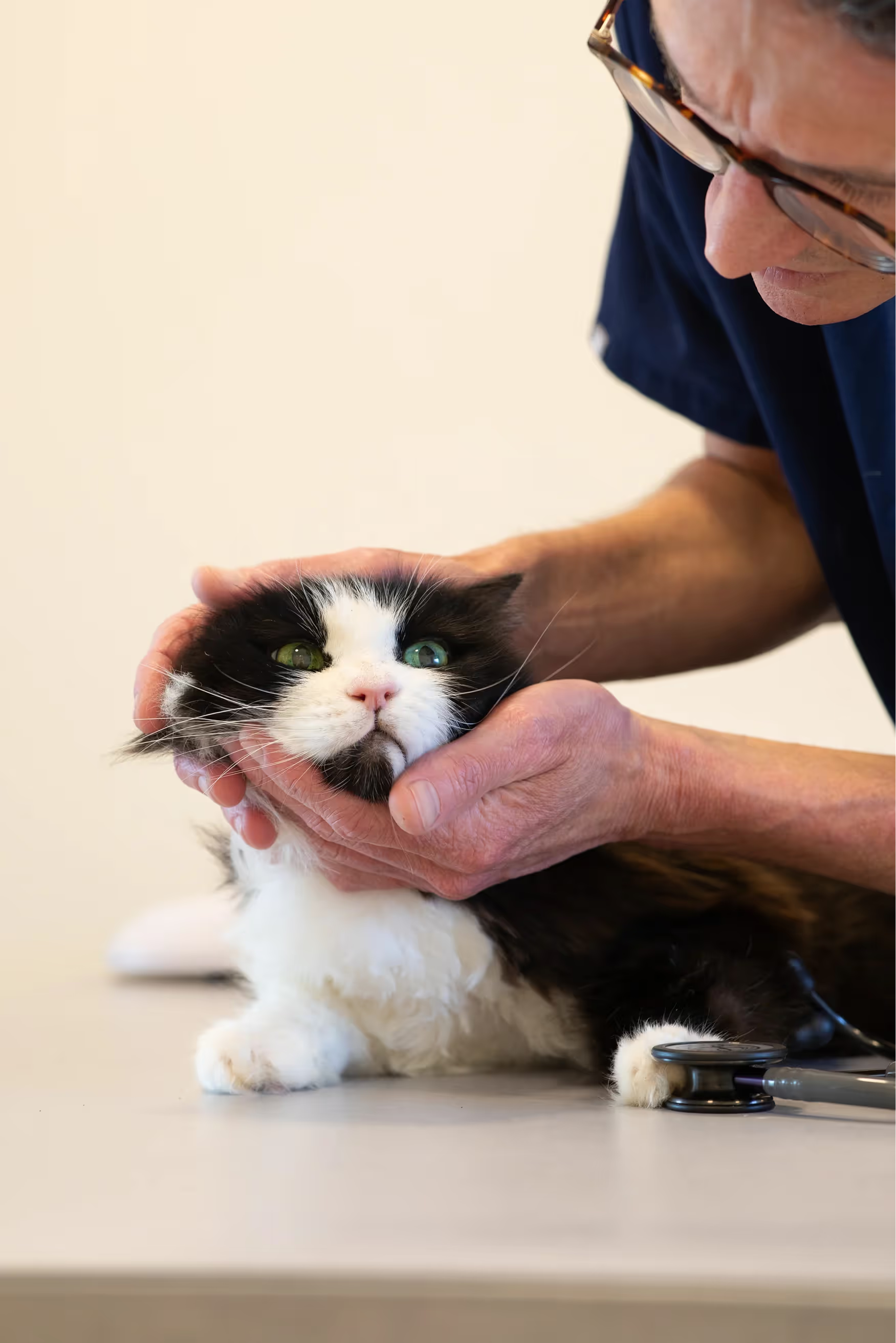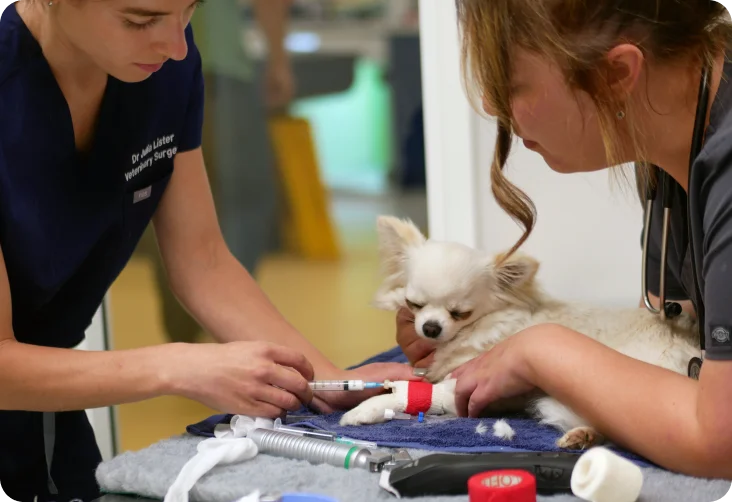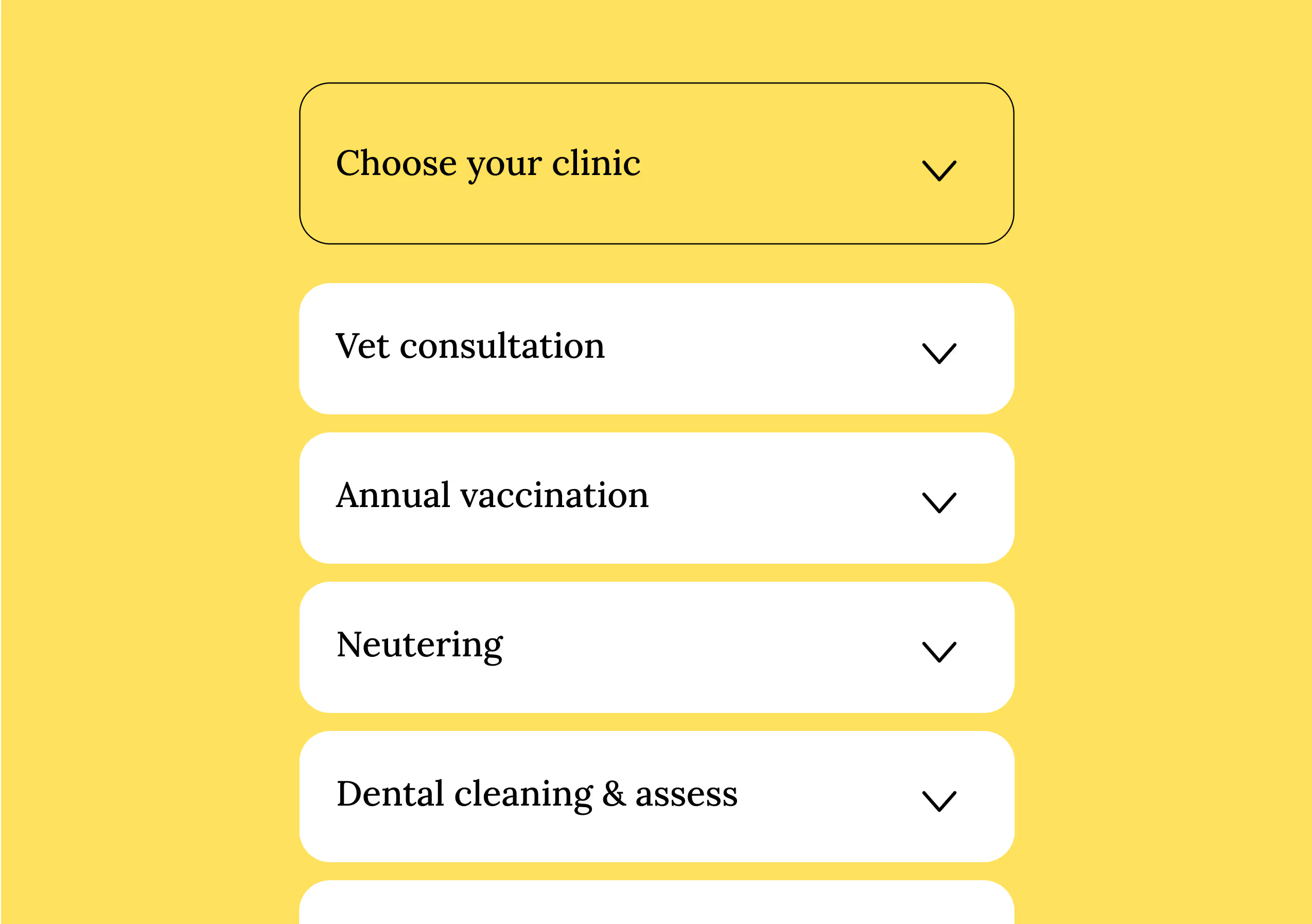Senior pet care
We’re here to help senior pets stay comfortable, happy, and pain-free. Proper support can make a big difference to their quality of life.
-2.avif)
We’re here to help senior pets stay comfortable, happy, and pain-free. Proper support can make a big difference to their quality of life.
-2.avif)
-2.avif)

It can be hard to watch your pet slow down with age, but there’s a lot we can do to keep them feeling comfortable, happy, and pain-free.
Old age varies across breeds, with larger breeds typically showing signs of ageing earlier than smaller ones. As dogs and cats get older, they can become more prone to certain health conditions, such as arthritis, dental disease, cataracts, kidney disease, and diabetes.
Small changes at home, regular check-ups and simple treatments can make a big difference. If you’re noticing anything new or unusual — from stiff joints to changes in appetite, vision, or behaviour — please don't hesitate to reach out, we're here to help.

During consultations, our vets assess your pet’s dental health and discuss appropriate treatment options, which may include professional cleaning or extractions to manage dental disease and reduce pain or infection.
We can run a range of blood tests to assess organ function, including the kidneys, liver, thyroid, and more. Some tests can be performed in-house for quick results, while others are sent to external laboratories for detailed analysis.
Using our ophthalmoscope, we examine the eyes for age-related changes such as lens cloudiness or cataracts. This helps determine whether the changes are normal or signs of underlying eye disease.
We evaluate your pet’s mobility and joint health during consultations, and can use X-ray imaging to detect signs of arthritis or other degenerative joint conditions. This helps guide treatment options such as joint supplements, medications, or lifestyle changes.
If your pet has stopped showing normal behaviour, it may be worth coming in to have them assessed by a vet to make sure they are doing alright. We can examine them to make sure they are doing ok physically, but also provide tips on how to properly care for an elderly pet.
If your pet is not acting like themselves, it may be worth having them assessed by a vet to make sure there are no new health concerns. We will examine them physically and also provide tips on how to provide the best care for an elderly pet at home.
Dogs can pant and be clingy for various reasons, and sometimes this behaviour may indicate that they are in pain/uncomfortable. If this has suddenly started happening, it may be worth discussing with one of our clinical members of staff.

We've redesigned vet care, from your pet's perspective. Calming care in clinics purpose-built for anxious pets.

Instant WhatsApp advice and same-day appointments. We team up with you at every step because you know your pet best.

“We built Hello Vet on the belief that fully cared-for clinicians provide better care for every pet.”
Dr. Christian LeVan, Clinical Director

Free advice over WhatsApp, provided by our clinical team. We've saved our clients thousands in fees.

We’re the UK’s first vet to let you stay with your pet during procedures, when they need you most.

Our clinics are designed by vets to keep anxious pets calm. Sunken scales, separate waiting areas, treats. Open 7 days a week.

Our prices are public, we share cost estimates upfront and we offer contextualised care, exploring treatment options for every budget.